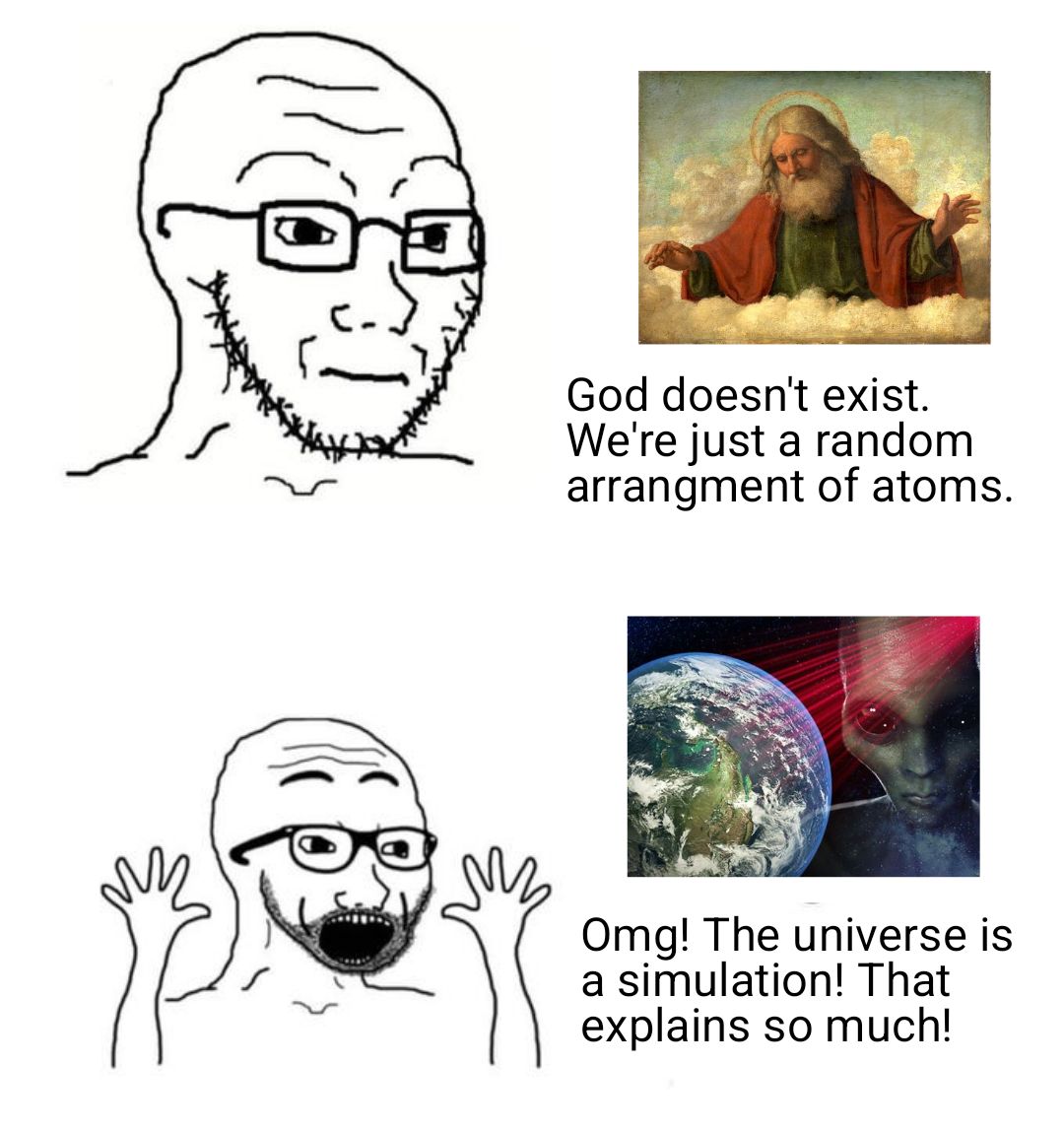this post was submitted on 22 Dec 2023
405 points (76.8% liked)
Memes
54063 readers
1480 users here now
Rules:
- Be civil and nice.
- Try not to excessively repost, as a rule of thumb, wait at least 2 months to do it if you have to.
founded 6 years ago
MODERATORS
you are viewing a single comment's thread
view the rest of the comments
view the rest of the comments

You're assuming belief in the Abrahamic God to make your argument easier. But not all theists subscribe to such a position. And belief in a disinterested god who created the universe seems just as plausible as believing in a disinterested programmer who wrote a simulation.
Those conjectures aren't just equally plausible, they're the same thing.
I think their point is belief versus theory. One requires faith, the other thought.
It's why it's simulation theory and not Simulationism. People acknowledge it, but don't follow it, nor believe it, since belief requires clearing unknown gaps with leaps of faith to reach an unknown destination. Theory seeks answers of the unknown with "could be this, could not be this" whereas belief is "it be this".
This always points back to the paradox which all divinity falls into. The moment we know of a god to be real, it is old news and no longer divine. The next scientific step is "What made it so?" and moves right along to bigger things whether theists are on board or not.
Of the few words ending with -ism and -ist in science or theory, none have belief or faith.
Even the most apparent, such as the Big Bang Theory, are still marked a theory, after all. Believing in them—convinction without 100% knowledge—is foolish and closes doors of what may actually be truth.
What an amazing belief. We believe that a something we know nothing about maybe did something that we have no evidence for.
I’m not assuming anything. The image shown in the OP is an image of the god of Abraham and the initial premise is wrong. If there was a sizeable population of theists who believed in a disinterested god, we’d have somewhere to start a discussion.
I don't know what you'd consider "sizable" but a lot of people these days are spiritual without being religious. Which is unsurprising. Atheism/agnosticism are on the rise, so it makes sense that people who believe in a god but don't subscribe to a particular religion are also on the rise.
People who believe in a god but aren’t part of a religion would have to dictate the parameters for their god in order for it to be meaningful in any way. As stated before, the OP didn’t make the initial idea that nebulous. They were pretty specific.
God got bored lol. Yeah nah I'm spiritual, but I'm not much a of a theist.
I just trust that many that don't believe in a higher power also often believe that they're very important and therefore "above". Essentially most old school religion is like a dam that withholds personal narcissism from overtaking society.